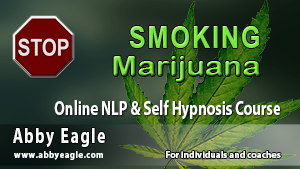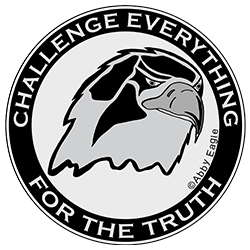
People with aninternal locus of control are more likely to choose complementary and natural therapies and less likely to suffer from anxiety and depression. People with an internal authority feel like they are in control of their life. Locus of control refers to the degree you feel you have control over your life - see NLP Meta Program: Frame of Reference, Authority Source - Internal/External. Phone 07 5562 5718 or send Abby an email to book a free 20 minute telephone or Skype session. NLP Coaching, Hypnotherapy and Medtation, Gold Coast, Robina.
Why do People with an Internal Locus of Control Choose Natural Therapies?
By Abby Eagle (2019)
Click the Image to Watch on YouTube
In this article we are going to talk about the locus of control. That is are you in control of your life – are you your own authority or do you typically defer to an external authority? Those who are their own authority are more likely to be proactive while those with an external authority sort will be more reactive.
So let’s get down to it. A lot of people eat junk food, get sick, visit a Doctor, start a medical treatment and then as a last resort they may take a look at natural therapies. I have seen this over and over again with people who eat junk food, smoke cigarettes and marijuana, drink too much alcohol, gamble in the hope of winning a fortune – and then they get a cancer diagnosis – and then immediately step onto the chemo therapy conveyor belt as-if that is their only option.
In the West, main stream medicine dominates so the presupposition is that main stream medicine should come first – and for many people the first thing they do when they feel unwell is to visit a Doctor – which in some cases could be a good idea. But then rather than taking the information given to them by the Doctor and then gathering more information from a number of other sources they do what the Doctor tells them to do.
Now from personal experience I can tell you that is not a good strategy. In my younger days I suffered at the hands of the medical profession and gradually as I got older I learned to treat them as a consultant. Someone you see to get an opinion but then take that information and consider the benefits and the consequences of the treatment that they offer before making a decision.
For a long time the medical profession referred to all the other healing professions as alternative therapies. In the last few years there has been a slight improvement and now they refer to those who are not mainstream medicine as complimentary therapies – but the presupposition still is that mainstream medicine should come first and everyone else is second.
Now there are two sides to everything – and what you have to consider are the possible benefits and consequences. If you visit a Doctor what are the benefits and what are the consequences? If you visit a Naturopath what are the benefits and what are the consequences? What is the upside and what is the downside?
So in terms of health are you proactive or are you reactive? So those people who routinely get the flu vaccine might think they are being proactive but are they really? Have they considered both benefits and consequences? Have they spent time gathering information from multiple sources? And where is the locus of control? Are they blindly trusting an external authoritarian authority? And who are the corporations that produce and sell the vaccines? What is their agenda? Are they working for your best interests or do they have another agenda? These difficult questions need to be discussed. So there are two types of people. The sheep has an external authority and does what ever the sheep herder tells them to do. The wolf has the courage to do their own research and make their own decision and live their truth. Which one are you? Are you a sheep or a wolf?
If you are a wolf then take the opportunity to make hay while the sun shines. Prepare for the worst while you have the strength and the resources. Don’t procrastinate and think that you can rely upon the medical profession to help you if you get sick? Be more future oriented – be aware that at sometime in your life you will probably get ill. You can mitigate that of course by immersing yourself in a healthy lifestyle starting from today.
So the proactive person takes action just in case – these are the preppers – the ones who have a disaster prep strategy – they are ready for any catastrophe. The proactive person considers the past, the present and two possible futures – a negative future and a positive future. On the other hand the reactive person ignores the past – has no idea of the future and lives in the present oblivious to what may happen tomorrow.
The proactive person is more likely to have an internal authority sort with an external check. The reactive person doesn’t really listen to anyone – however once they get sick they do what the mainstream medical profession tells them to do. Which one are you? Do you do what the authority figures in your life tell you to do or do you gather a lot of information and draw your own conclusions?
And when you gather information do you have a bias – that is a prejudice – a prejudgment or are you willing to consider all options? This is also going to bring in the element of trust which is going to be based upon your personal experience.
Now as I have got older I think I trust people less. So I don’t blindly trust anyone in the medical profession whether they be a doctor or a naturopath. For example, 18 months ago I got a frozen shoulder. I discussed it with a couple of friends who had frozen shoulder. I discussed it with my doctor. They all talked about having steroid injections. I did my research and looked at the possible side effects. I said no way. A couple of months later I had 2 frozen shoulders but then over the next 9 months by just making a few changes to my lifestyle both shoulders healed to about 80% of their original health.
Another example. A few months back things were a bit stressful to say the least and a couple of skin cancers developed on my arms. I actually considered visiting the skin cancer clinic. One of the things that stopped me was the memory of a friend who visited a cancer clinic and how badly he was treated. So anyway I thought maybe I should go and get an opinion.
So now we get to the proactive strategy. In my early days, apart from one time that I got severely sun burned when I was 15, I always took great effort to protect my skin from the sun. And some years ago I had the opportunity to have intravenous EDTA for heavy metal chelation. The clinic also offered intravenous vitamin C so I had them add that to the bag. It was quite expensive so then I looked at giving myself intravenous vitamin C at home – but I couldn’t obtain one essential ingredient so I shelved it for a while. The point is that I didn’t really need the vitamin C treatment – it was a good practice just in case I got sick.
So then I looked at making liposomal vitamin C. I watched dozens of videos on youtube on the science of vitamin C and then I found a recipe – bought the equipment and then learned how to make my own. The interesting thing is that my physiotherapist advised against taking vitamin C supplements – and my doctor was not able to offer me any help so it was left to me to make the decision. So having an internal authority sort with an external check I started making liposomal vitamin C. And then I got severely stressed and the skin cancers flared up.
If you are not aware of it – stress is a trigger for a lot of illnesses, including cancer – and it was the German Doctor – Dr Hammer who studied 15,000 cancer patients. In each and every case there was a significant emotional event (SEE) one to three years prior to the onset of the illness. That is not to say that stress causes cancer just that – according to Dr Hammer – that if the person develops cancer then there will be a significant emotional experience one to three years prior to its onset. If you use NLP techniques to heal the negative memories then it should support the healing process.
So I think to myself that I should give the liposomal vitamin C a go before visiting the clinic. I persevered and then low and behold after about 3 weeks of 12 grams of liposomal vitamin C per day the cancers healed and my skin is looking so much healthier.
My suggestion is to be an individual – be a wolf – gather information from a wide range of sources - and skill yourself up. Get some practise with a range of diets and health practices - you may never know when you may need it for yourself or a loved one.
Learn everything you can about nutrition but what is the best source of information? Who can you trust? In NLP we look for people at the top of their profession – people who are fine examples – so when it comes to health all you have to do is to look for people who are healthy and model out their lifestyle and diet.
There was a Dentist who did that back in the late 1930’s. Dr Weston A Price travelled the world to study isolated groups of people living on a traditional diet and compare them to people living on the foods of commerce – what we would now call junk food.
I intend to talk more about Dr Price in other articles but in the meantime you can learn more about traditional diet from the Weston A Price Foundation website. The important thing is that when you model out a traditional diet you want to make sure you don’t cherry pick and do what fits your belief system. For example, just because the Japanese Okinawans ate small quantities of soy with fish broth and vegies doesn’t mean that you should eat massive slabs of soy in a huge bread bun.
What you need is to find a group of people who have had the same diet and lifestyle for three generations. For example in Malaysia there are distinct ethnic groups – Chinese, Malay Indians, Indians, people from the Middle East and a few from Burma and the Philippines. The ethnic groups self segregate and eat a traditional diet. It is a great place to visit. You can get an idea what the different ethnic groups eat from their restaurants and you can see the differences in their racial form. I think the Malay Indians have the best diet.
The last person you want to take advice from is someone who has been on a diet for six months – they seem to be in glowing health – so they write a book and claim that they have found the fountain of youth – but then a couple of years later they are on a totally different diet – so then they publish another book and so it goes on and on.
So let’s look at my action hero, Arnold Schwarzenegger. Arnie has now become a vegan and he is loving it. Hmmm? Go on line and take a look at his face – look at his jaw – did he get that on a vegan diet? Of course not – so even though he might think that he could have built that amazing body on a vegan diet he has no proof. I read Arnie’s autobiography decades a go. From memory when he was around 14 years of age he wrote his master plan. He wanted to be a Mister Universe body builder. He also wanted to be a famous Hollywood actor and an American Politician. He achieved all of these goals – so he did good.
So back when Arnie was 14 he knows that he needs to eat protein to build muscle – but he is a poor Austrian boy so he buys the cheapest meat he can find which from memory was pigs testicles. As he got older he ate a dozen eggs a day. So the excellent nutrition that he got as a child, as a teenager and young adult built that amazing body. So he has good genetics – that is the phenotype matches the genotype – which means that as an adult he could become a vegan – no problem. But if you feed some poor infant a vegan diet you will never produce a body shape like Arnold’s. In most cases the vegan child will be tall and skinny with a narrow mouth and pointed jaw. And while I am on this topic can you show me a third generation vegan? I keep asking this question and no one has yet provided the evidence.
So when you model out the diet of healthy people you want to find out what they ate as a child up until the age of 18. You also want to find out what their parents and grandparents ate. So make it a practice to ask people what they ate as a child. Look at their body proportions – look at their face – their jaw line – their smile and their teeth. And you also need to do a comparison between siblings and between the child and their parents. Once you start to recognise the differences it will blow your mind.
Okay that’s it. The point of this article was to learn to have an internal locus of control – gather information – weigh up the information and make your own decisions – and learn from your mistakes as you go. The second point was to be proactive rather than reactive. These are two traits of a conscientious individualist. All the best to you.
If you want some help with anger management then feel free to contact myself – Abby Eagle using the contact form - top right of this page. And feel free to join us over at the Facebook NLP Hypnotherapy Group.
Share With Friends
| DISCUSSION GROUPS | |
|---|---|
 |
|
| NLP Future Selfing | |
| NLP, Hypnotherapy & Meditation | |
| NLP Peace Mapping | |
| Facebook Discussion Group | |
| The secret of high achievers |
|---|
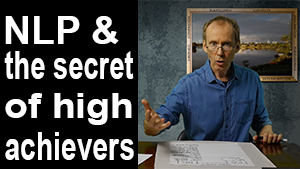 |
| How to build a powerful team |
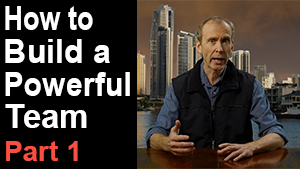 |
| Learn the NLP Meta Model |
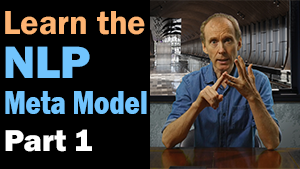 |
| How I stopped drinking alcohol. |
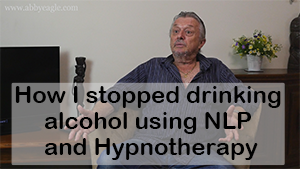 |
| How to coach yourself using NLP. |
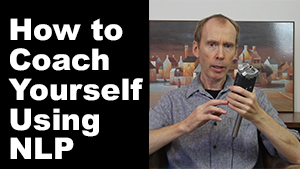 |




